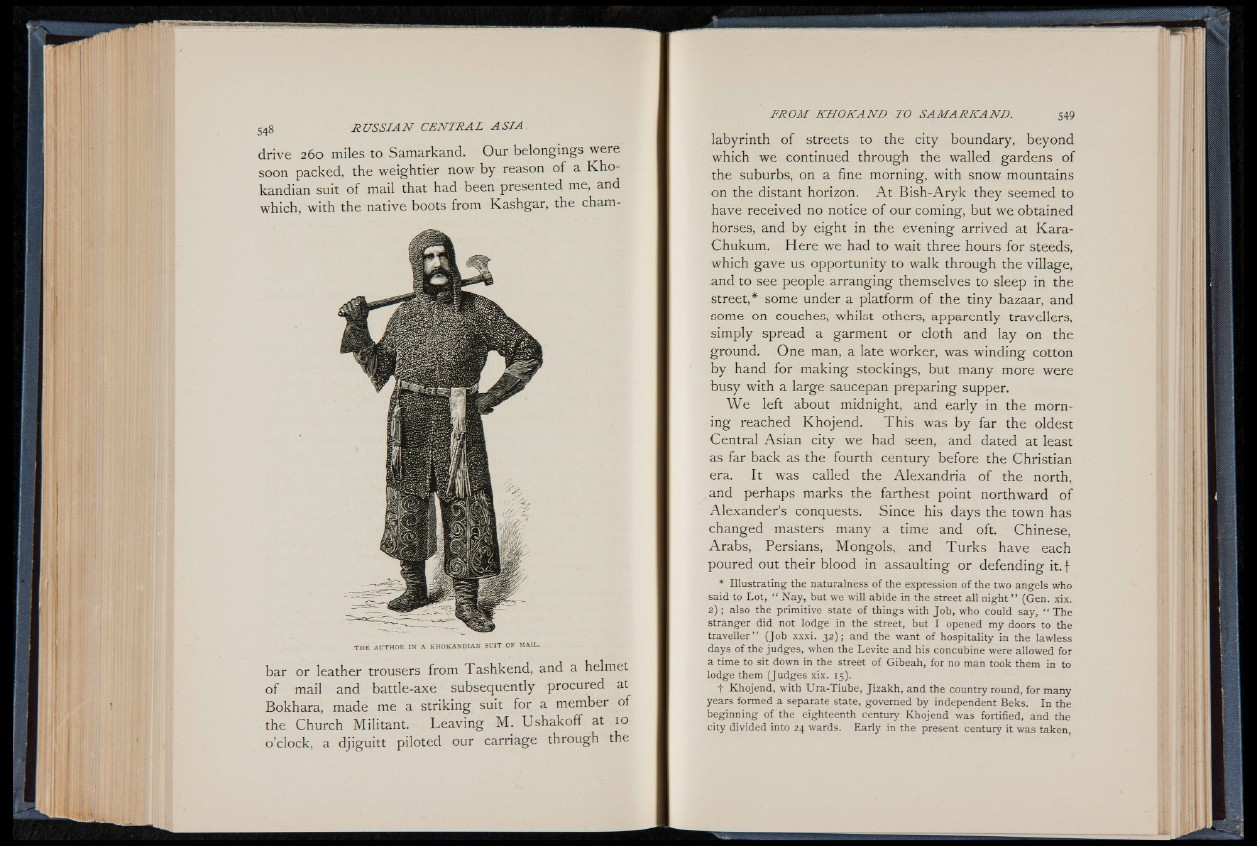
drive 260 miles to Samarkand. Our belongings were
soon packed, the weightier now by reason of a Kho-
kandian suit of mail that had been presented me, and
which, with the native boots from Kashgar, the cham-
THE AUTHOR IN A KHOKANDIAN SUIT OF MAIL.
bar or leather trousers from Tashkend, and a helmet
of mail and battle-axe subsequently procured at
Bokhara, made me a striking suit for a member of
the Church Militant. Leaving M. Ushakoff at 10
o’clock, a djiguitt piloted our carriage through the
labyrinth of streets to the city boundary, beyond
which we continued through the walled gardens of
the suburbs, on a fine morning, with snow mountains
on the distant horizon. A t Bish-Aryk they seemed to
have received no notice of our coming, but we obtained
horses, and by eight in the evening arrived at Kara-
Chukum. Here we had to wait three hours for steeds,
which gave us opportunity to walk through the village,
and to see people arranging themselves to sleep in the
street,* some under a platform o f the tiny bazaar, and
some on couches, whilst others, apparently travellers,
simply spread a garment or cloth and lay on the
ground. One man, a late worker, was winding cotton
by hand for making stockings, but many more were
busy with a large saucepan preparing supper.
We left about midnight, and early in the morning
reached Khojend. This was by far the oldest
Central Asian city we had seen, and dated at least
as far back as the fourth century before the Christian
era. It was called the Alexandria of the north,
and perhaps marks the farthest point northward of
Alexander’s conquests. Since his days the town has
changed masters many a time and oft. Chinese,
Arabs, Persians, Mongols, and Turks have each
poured out their blood in assaulting or defending it. f
* Illustrating the naturalness of the expression of the two angels who
said to Lot, “ Nay, but we will abide in the street all night ” (Gen. xix.
2); also the primitive state of things with Job, who could say, “ The
stranger did not lodge in the street, but I opened my doors to the
traveller” (Job xxxi. 32); and the want of hospitality in the lawless
days of the judges, when the Levite and his concubine were allowed for
a time to sit down in the street of Gibeah, for no man took them in to
lodge them (Judges xix. 15).
t Khojend, with Ura-Tiube, Jizakh, and the country round, for many
years formed a separate state, governed by independent Beks. In the
beginning of the eighteenth century Khojend was fortified, and the
city divided into 24 wards. Early in the present century it was taken,